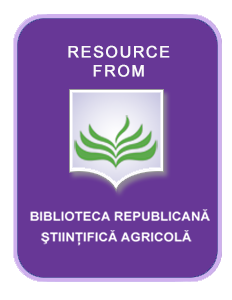Resource information
Since 1991, Moldova has carried out a wide range of radical reforms affecting its social and economic system. The land reform, which was practically completed in 2000, created over 1 million landowners among the rural population. Many of them entrusted their land to managers of newly created corporate farms. Others used their privately owned land to establish independent family farms. The creation of independent family farms (so-called "peasant farms") was one of the primary goals of the land reform. More than 280,000 peasant farms have been created, averaging 1,86 hectares in size. The small size of the peasant farms, whose holdings are furthermore split into 3-4 parcels, raises considerable concerns about their long-term viability and has led to an intense public debate regarding the impacts of fragmentation. In this paper, we use the data from several recent surveys in Moldova to support the case for land consolidation. We show that, in the individual sector, larger farms produce higher family incomes and thus farm augmentation makes a positive contribution to the well-being of the rural population. We also show that, for farms of a given size, productivity increases as the number of parcels decreases. After demonstrating the economic advantages of consolidation, we proceed to discuss the actual use of various market mechanisms for land consolidation, including leasing as well as buying and selling of land. We then show that, in our surveys, farms with leased land are in fact larger than farms that rely on owned land only. This completes the logical circle of our argument: land consolidation leads to better economic performance, while land leasing is actually used as a market mechanism for consolidation, which benefits both lessees (through increased farm incomes) and lessors (through income from lease payments for their land).


